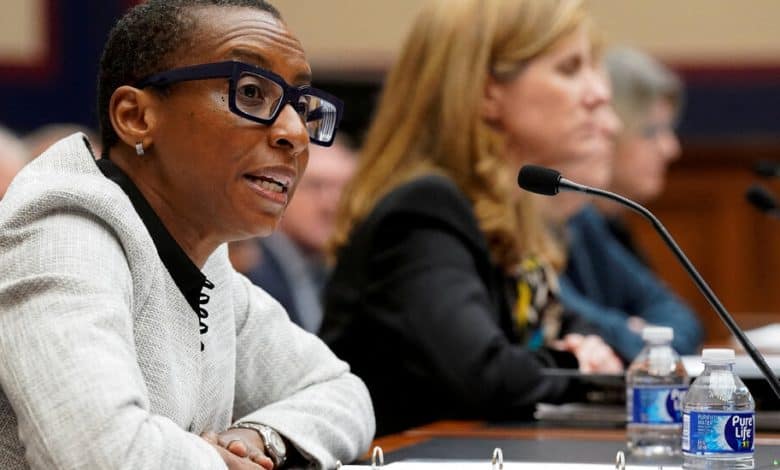What to know about the latest plagiarism accusations against Claudine Gay.

New plagiarism allegations that surfaced on Monday against Claudine Gay threatened to mire Harvard deeper in debate over what constitutes plagiarism and whether the university would hold its president and its students to the same standard.
The accusations were circulated through an unsigned complaint published Monday in The Washington Free Beacon, a conservative online journal that has led a campaign against Dr. Gay over the past few weeks.
The new complaint added additional accusations of plagiarism to about 40 that had already been circulated in the same way, apparently by the same accuser.
Dr. Gay has strongly defended her work. “I stand by the integrity of my scholarship,” she said in a statement on Dec. 11, when the initial plagiarism charges were being circulated by conservative activists online and the Harvard Corporation was considering whether she should remain as president. “Throughout my career, I have worked to ensure my scholarship adheres to the highest academic standards,” Dr. Gay said.
The documents by the unnamed accuser that The Free Beacon links to on its website show 39 examples in the first complaint, rising to 47 in total in the second complaint. Separately, Harvard’s investigations have found instances of inadequate citation in her dissertation and at least two of her articles.
She has not been accused of stealing big ideas, but rather of copying language in the papers of other scholars, with small changes to substitute words or phrases or to arrange them differently. Often the language in question is technical boilerplate.
The new complaint against Dr. Gay is preceded by a five-page chronology, written in a tone ranging from somber to sarcastic — under the jaunty salutation, “Happy New Year!” The chronology notes that the unnamed accuser submitted the first batch of allegations to Harvard on Dec. 19.
In one paragraph, the accuser, who seems to be familiar with Harvard’s policies on plagiarism, explains why he or she was unwilling to be identified by name: “I feared that Gay and Harvard would violate their policies, behave more like a cartel with a hedge fund attached than a university, and try to seek ‘immense’ damages from me and who knows what else.”
The New York Post has reported that it approached Harvard with plagiarism accusations against Dr. Gay in October, and said that Harvard responded through a defamation lawyer.
The accuser goes on to wonder why Harvard was so intent on exposing him or her: “Did Gay wish to personally thank me for helping her to improve her work even if I drove her harder than she wanted to be driven?”
The sentence is an allusion to a phrase in the acknowledgments of Dr. Gay’s 1997 dissertation, where she says that her family “drove me harder than I sometimes wanted to be driven.”
It is one of the phrases she is accused of copying, from the acknowledgments of a 1996 book, “Facing Up to the American Dream: Race, Class, and the Soul of the Nation,” by the Harvard political scientist Jennifer L. Hochschild, who was thanking another academic.
